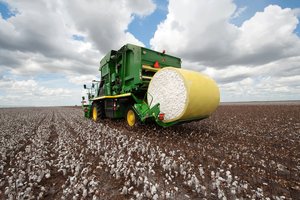Due to one of the strongest El Nino phases in decades, farmers in the Southeast could be forced to accelerate their harvesting efforts this fall. Peanut, soybean and cotton producers are being advised by Auburn University’s College of Agriculture to start their harvest sooner rather than later.
“There have been indications since this past spring—based on climate models and sea-surface temperatures in the Pacific Ocean—that we are entering an El Niño climate phase, meaning a cooler and wetter fall and winter,” said Brenda Ortiz, associate professor in the Auburn University College of Agriculture’s Department of Crop, Soil and Environmental Sciences. “The sea-surface temperatures in the Pacific have to be warmer than normal, and that’s the main indication of changes toward the El Niño phase.”
Alabama producers could potentially be hit the hardest, especially in the northern portion of the state where rain is expected.
“Soils in that region are heavy, and we’ll be getting rainfall more often and in heavier amounts,” Ortiz continued. “The soil will remain wet for a longer period of time, and that might be an issue. Heavy rainfall also could lead to nitrogen leaching.”
On Sept. 28, the U.S. Department of Agriculture’s Alabama Field Office showed that many people are hopping aboard harvesting equipment and have started harvesting crops, such as cotton. For the week of Sept. 27, there had been more than five days suitable for fieldwork.
El Nino, La Nina and Neutral are all climate phases that impact rainfall and temperatures throughout the fall, winter and spring.
